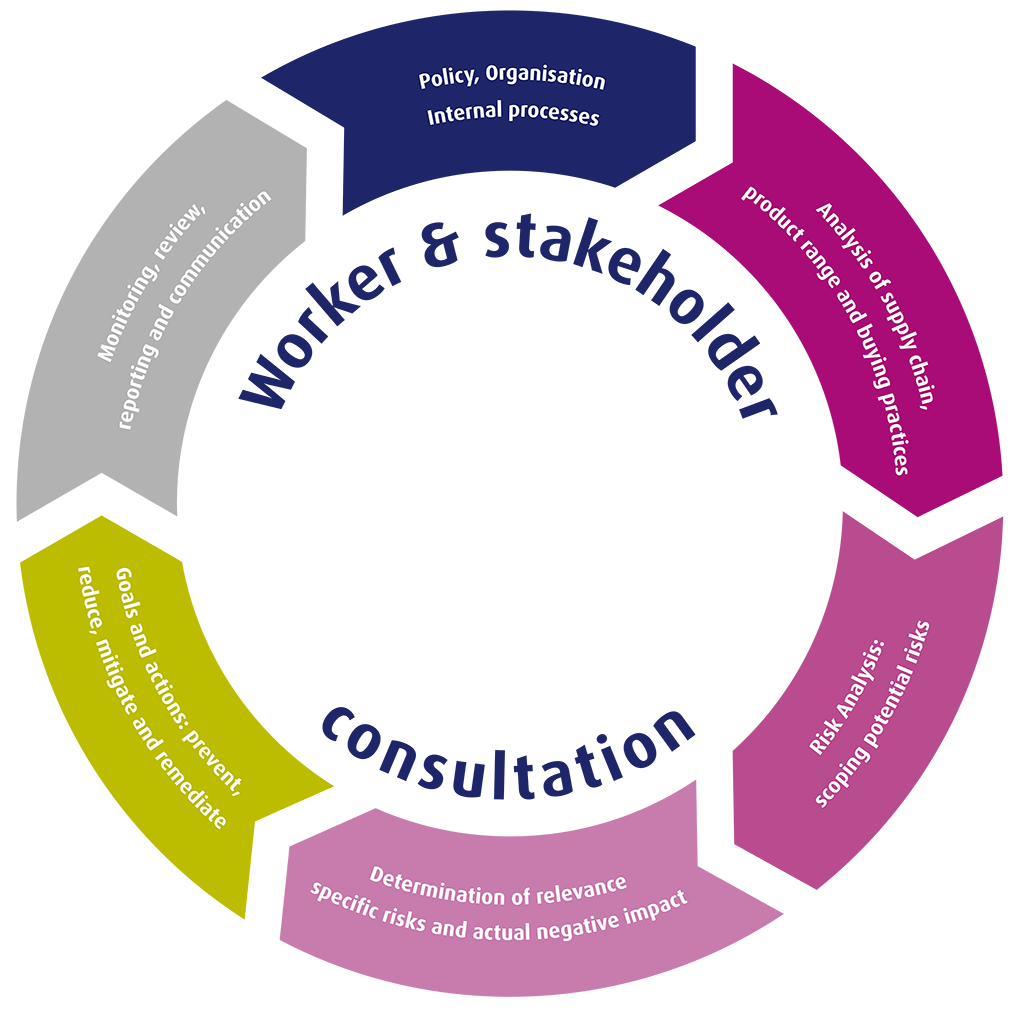Due Diligence
Under the OECD Guidelines, businesses must investigate the extent to which they are implicated in human rights, environmental or animal welfare violations. Such an investigation is known as due diligence.
Due diligence can take a variety of different forms and draw on many different sources. Under the terms of the Dutch Agreement on Sustainable Garments and Textile, an Assessment System has been developed to guide businesses through the due diligence process. The system is mandatory for businesses that have signed the agreement. It allows them to gain as complete a picture as possible of their supply chain. Based on this information, they then draft an action plan for making continuous improvements. This plan helps them to avoid negative impacts on people, the environment and animals in the supply chain.
The Assessment System consists of six steps. It is based on OECD Guidelines, UN Guiding Principles on Business and Human Rights and ISO 26000. One critical part of the system is to involve the works council or workers’ representation, trade unions and NGOs at the production sites.
Policy plan
What steps have already been taken? What elements of International Responsible Business Conduct have already been addressed? What more can be done?
Risk analysis
One essential step is to research what impact the company may already have on human rights, worker health and safety, environmental protection and animal rights. This risk analysis is an ongoing process, because circumstances are changing constantly.
Implementation
How will International Responsible Business Conduct be implemented within the company? How will the company’s operations be adapted? What role will the HRM department or safety officers play, for example?
Monitoring
Continuous monitoring makes it possible to assess whether the company’s policies are being implemented. Monitoring also helps to constantly improve policymaking and the instruments used.
Remedy
Despite these efforts, abuses may yet occur, perhaps within the company itself or among its subcontractors or suppliers. It must be possible for workers and others to report a complaint. The company must then address these abuses.
Communication
It is important for a company to show that it respects human rights and conducts business in a responsible and sustainable way. It must therefore explain how it addresses these issues. By communicating, it is being open about its activities and can also be held accountable.
International Responsible Business Conduct is an ongoing process. Companies that have signed the Dutch Agreement on Sustainable Garments and Textile must go through this cycle every year and make continuous improvements.
Businesses, industry associations, trade unions, the National Government of the Netherlands, and NGOs are working together to achieve the aims stated in the agreement.

